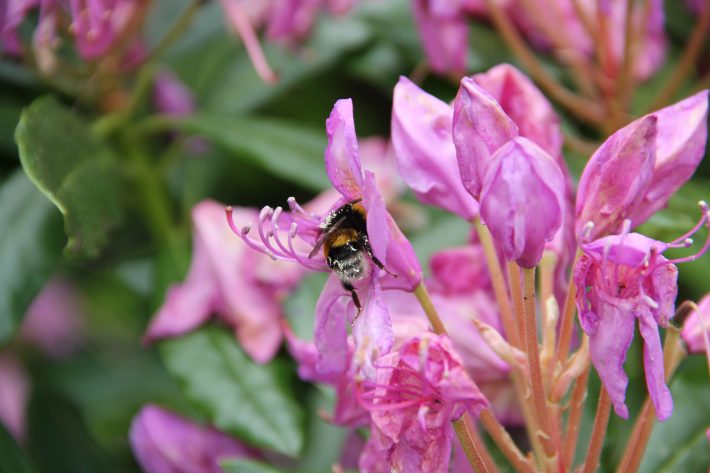New Special Feature: Plant Pollinator Interactions from Flower to Landscape
The relationship between plants and pollinators is built on a clear, mutually beneficial exchange– the pollinators get food, in exchange for helping plants reproduce. Functional Ecology’s latest Special Feature, edited by Susan W. Nicolson (University of Pretoria, South Africa) and Geraldine A. Wright (Newcastle University, UK) looks at how plants and pollinators specialise and what factors govern the evolution of plant-pollinator relationships.

Competition between pollinators for food affects the shape, colour, and scent of flowers, while competition among flowering plants effects how plants invest in the production of pollen and nectar. While many pollinators are ‘generalists’, visiting a variety of flowering plants to obtain food, some plants and pollinators have developed a closer relationship. The eight papers cover what characteristics of floral traits are shaped by specialised plant-pollinator relationships; the nature of the food offered to pollinators; and what characteristics of populations of pollinators and plants make them resilient to anthropogenic change.
Read the papers free online here. Want to read more on the topic? Check out the accompanying virtual issue, highlighting 10 recent Functional Ecology papers, specially selected by Sue Nicolson and Geraldine Wright, that address plant-pollinator relationships.
Like what we stand for?
Support our mission and help develop the next generation of ecologists by donating to the British Ecological Society.